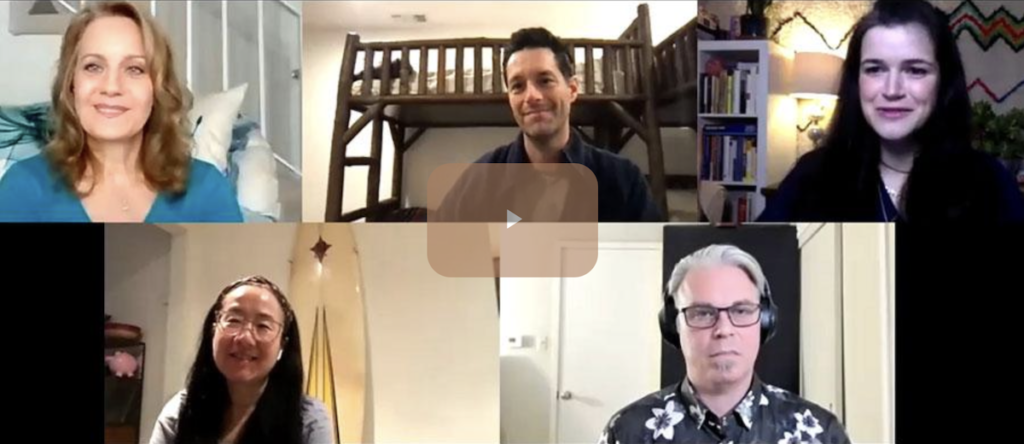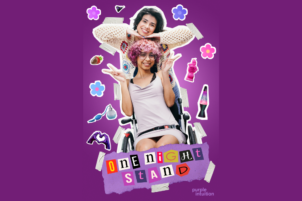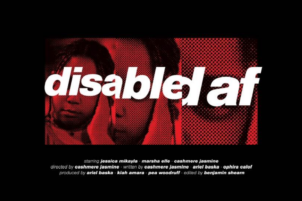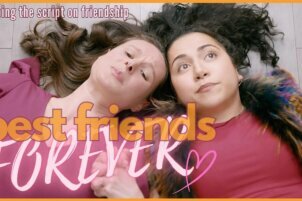Los Angeles, January 21 – As the entertainment industry continues to intentionally include creatives with disabilities, The Television Academy is playing a part in educating their members. Through the Interactive Media Peer Group, Academy members discussed the importance of and the impact that disability in media has in molding public perceptions of the disability identity.
Moderated by Eileen Grubba, Filmmaker, Actress, and Disability Inclusion Advocate, the panel attracted “creatives, producers and technologists” at the forefront of establishing a more inclusive world, whether it be behind or in front of the camera or with technology to aid and assist people with disabilities. During the conversation, several advocates addressed the challenges facing people with disabilities in an inaccessible environment, along with trends and technologies ushering in a new era of unseen inclusion.
Grubba identifies as a person with a disability, which is visibly evident by her limp. Throughout her years as an actress trying to navigate the Hollywood labyrinth, she has faced discrimination, which drove her into advocacy. She believes some of the inauthentic representations of disability stem not from hostility, but from fear of “not knowing how to include” talent with disabilities. Her goals include helping content creators looking to cast and hire people with disabilities understand the step-by-step process that will create a new media landscape “accessible to all.”
Leah Romond is the Senior Production Advisor of the disability advocacy nonprofit RespectAbility, which helped Grubba and the Television Academy recruit panelists and ensure live captions. Romond shared important background information and statistics to set the stage. She also demonstrated best practices, describing herself and her surroundings as a way to help blind people or people with low vision participate in this panel. Citing the statistics that “61 million people in America have a disability, or about one in four” and “51% of Americans have a disability or know someone with a disability,“ Romond described how common disability is despite the stigmas society has placed upon the community.
“We not only want programming that shows disability but we also want people with disabilities included in every step of creating that program,” said Romond. After mentioning the lamentable numbers of characters with disabilities portrayed in media (about 3.5 percent on primetime TV), she touted the virtues of lived experience that provide for intangible, nuanced representation audiences and people with disabilities are clamoring for and that she advocates for through RespectAbility, along with dispelling the notions that people with disabilities are not problem solvers, intelligent, or motivated.
David Schulner, showrunner of NBC’s New Amsterdam, recounted a story with Grubba regarding her role on New Amsterdam. Grubba’s character shared many similarities to her own life story. “We would’ve cast you based on your audition alone,” said Schulner. “But when it came to casting in New Amsterdam we were asking ourselves: ‘What can we do better? What are we getting wrong?’
He expanded on his philosophy of authentic casting, admitting that not allowing people with disabilities to speak up and participate is a form of injustice. Wanting to rectify this injustice, he feels a “greater responsibility” to include marginalized individuals, especially since his show is a medical drama and people with disabilities often face life and death situations within the American medical system.
Schulner’s philosophy of inclusion extends to productions on set as he tries to make everyone feel welcomed. Having said that, he realized he omitted his introduction and follows Romond’s lead by describing himself and his surroundings to audience members with low vision who may be listening.
Grubba commented on how Schulner’s commitment to inclusion translates onscreen since actors who have been ignored by medical shows are now central to this new culture of authenticity, which will not regress.
Subsequently, Grubba asked Grace Wu, EVP Casting, NBCUniversal, “What drives you to be so inclusive?” After a brief introduction and self description, Wu acknowledged she was late when it came to disability advocacy. “I always thought about casting the best actor, but I prioritized racial, ethnic, and gender diversity,” said Wu.
She later learned disability was overlooked, despite people with disabilities being members of the groups she mentioned. It was after her realization of unaddressed intersectionality that Wu became committed to casting more actors with disabilities.
Inspired by films with disabled leads like Run, Wu facilitates more equitable opportunities for talent with disabilities, including brokering deals between actors with disabilities who are not represented with agents so they can continue adding credits to their filmographies. Grubba addressed the fact that many agencies offer deals or packages but rarely are people with disabilities represented by the larger groups or agencies. Wu said it is incumbent upon companies like NBC to “put the onus” on agencies to represent more actors with disabilities and correct the malpractice and trend of underrepresented talent with disabilities.
As this panel was presented by the Interactive Media Peer Group, the panel also focused on these aspects. Christopher Patnoe, Head of Accessibility Programs and Disability Inclusion, Google, explained and showcased the adaptive technologies that are creating a more accessible world for both talent and audiences with disabilities. Similar to Wu, Patnoe did not originally think of accessibility until he had an encounter with inaccessibility. Having been in programming for more than 20 years, he realized, “Accessibility is no accident. It takes effort to get there.”
When it comes to inclusion and accessibility, especially in design, Patnoe understands it has to start from the inception of a project. “From a tech perspective, we have to think about disability as situational,” said Patnoe. Registering the complexities of problem-solving, he implored hiring coworkers with different perspectives and experiences to cover every angle of accessibility and make the most universal product imaginable. He added, “Inclusive design is not hard, it just takes a lot of intention.”
Grubba is hopeful the new forms of adaptive and inclusive technologies emerging will level the playing field for those with disabilities while giving nondisabled people a greater understanding of the challenges people with disabilities face in an inaccessible environment. Patnoe expanded on some of the technology available today – from live transcribers translating text or audio into 80 different languages in real time to sound notifications or applications describing objects to people with low vision, he is excited for the innovations available that can empower people.
He added commentary on the potential and possibilities of virtual reality and augmented reality, using Geordi Laforge’s visor from Star Trek: The Next Generation as an example. “I know I’m dating myself,” he chuckled, “but it’s like the visor that Geordi had in Star Trek. It was available to him because he had a disability. But not only did it make him equal, it made him better because he had these new abilities.”
As the panel wrapped up, Grubba offered words of wisdom in regard to forging a more accessible world. “It’s not a matter of if, but when someone develops a disability,” she stated. “Eventually, in time, everyone will face disability, so we shouldn’t punish those who have experienced the battle sooner.”
The panel ended with a closing statement from Noam Dromi, a veteran writer/producer, marketing executive and digital strategist, who reiterated the importance of advocacy in order to ensure a better society for people with disabilities.
Media conglomerates often have perpetuated unfair or inaccurate representations of individuals with disabilities, directly influencing the treatment of the disabled community by institutions. Historically, creatives with disabilities have been ignored or excluded from mainstream media, but now there is a cultural shift and those aforementioned creatives are pursuing and developing their own projects, highlighting their talents while providing audiences with authentic accounts within the large and varied disability community. Conversations like these will continue to push the needle forward.








